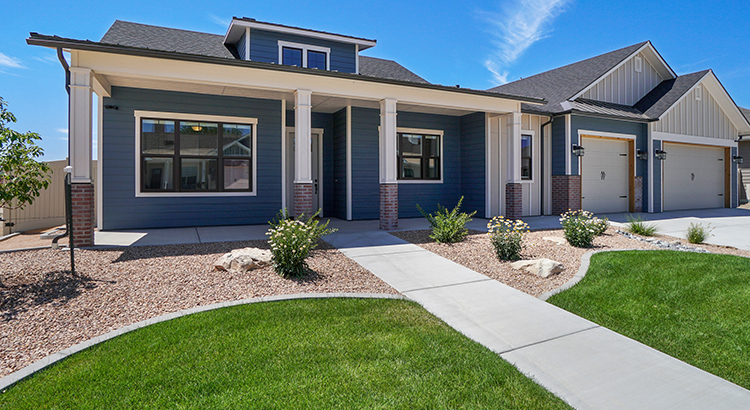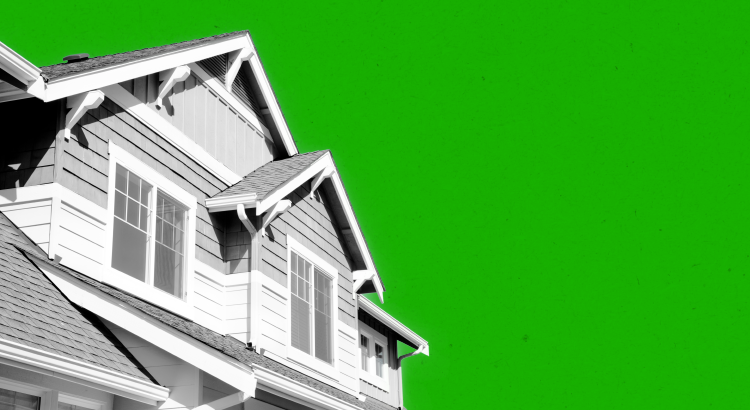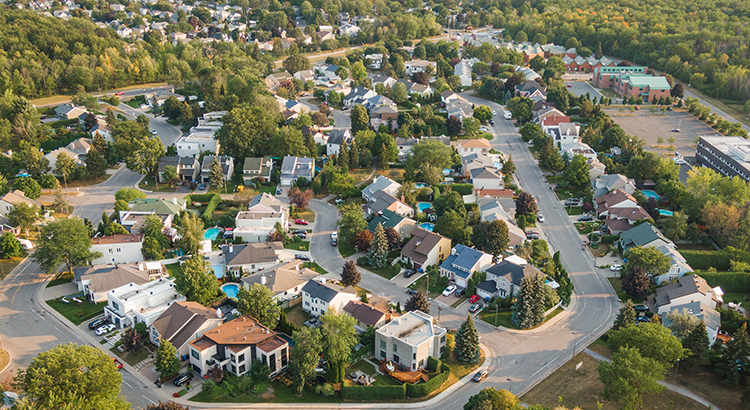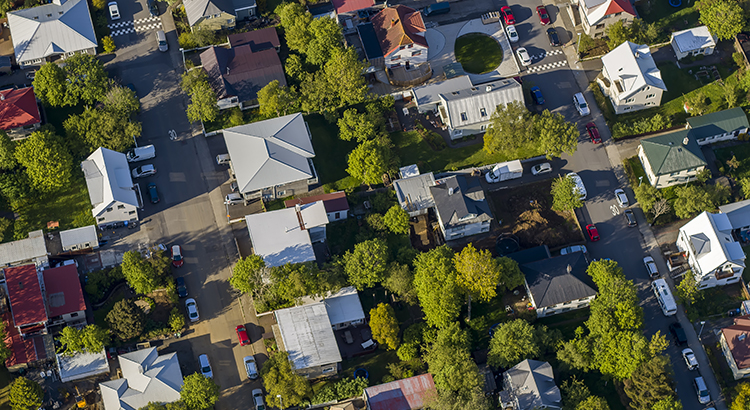Understanding Insurance Costs and Availability for Florida Home Buyers
Buying a home in Florida, whether as a primary residence or a secondary home, comes with its unique set of challenges. Among the most pressing concerns for home buyers in the Sunshine State is the cost and availability of homeowners insurance. With the state’s vulnerability to natural disasters, particularly hurricanes, insurance rates have been steadily rising, leaving many potential buyers worried about the long-term affordability of their investment. In this blog, we’ll explore the factors driving high insurance costs, the challenges in finding affordable coverage, and tips to help you manage these costs effectively.
Why Are Insurance Costs So High in Florida?
Natural Disasters: The Elephant in the Room
Florida’s geographical location makes it particularly prone to natural disasters, especially hurricanes, tropical storms, and flooding. The state experiences more hurricanes than any other in the U.S., which significantly increases the risk for insurers. This high risk is directly reflected in insurance premiums, making Florida one of the most expensive states for homeowners insurance.
Litigation and Fraud: A Growing Concern
Another major factor contributing to the high cost of insurance in Florida is the prevalence of litigation and fraud. The state has seen a significant number of insurance claims turn into lawsuits, often over disputed damages from natural disasters. This has created a challenging environment for insurers, who pass these costs onto homeowners through higher premiums. Fraudulent claims, particularly those related to roof damage and water leaks, also play a role in driving up costs.
Reinsurance Costs: Insuring the Insurers
To mitigate their own risk, insurance companies purchase reinsurance, which is essentially insurance for insurers. In a high-risk state like Florida, reinsurance is incredibly expensive. These costs are, in turn, passed down to homeowners in the form of higher premiums. As the frequency and severity of natural disasters increase, reinsurance costs are expected to rise, further impacting homeowners.
The Growing Challenge of Finding Affordable Coverage
Insurer Withdrawals: Limited Options for Homeowners
In recent years, several major insurance companies have withdrawn from the Florida market due to the high risk and financial losses associated with covering homes in the state. This has left homeowners with fewer options, often forcing them to turn to smaller, less established insurers who may not offer the same level of coverage or financial stability.
Citizens Property Insurance: The Insurer of Last Resort
For many Florida homeowners, particularly those in high-risk areas, Citizens Property Insurance Corporation, the state-backed insurer, has become the only option. While Citizens provides necessary coverage, it often comes at a higher cost and with more restrictions than private insurers. Additionally, because Citizens is designed to be an insurer of last resort, it may not offer the same range of policy options available in the private market.
High-Risk Zones: Coastal Living Comes at a Price
Living near Florida’s beautiful coastlines is a dream for many, but it comes with significant insurance challenges. Homes in these areas are considered high-risk due to their proximity to the ocean and their exposure to storm surges and flooding. As a result, homeowners in coastal regions often face higher premiums and stricter policy terms. In some cases, insurers may refuse to cover homes in these areas altogether, making it difficult for buyers to secure adequate coverage.
What This Means for Secondary Home Buyers
Increased Premiums: A Costly Consideration
If you’re considering buying a secondary home in Florida, be prepared for even higher insurance premiums compared to a primary residence. Insurers often view secondary homes as higher risk because they are typically unoccupied for long periods, making them more vulnerable to damage that could go unnoticed for extended periods.
Policy Restrictions: Managing the Risks of Unoccupied Homes
Secondary homes are more likely to face policy restrictions or higher premiums due to the risks associated with being unoccupied. Some insurers may require that homes be regularly checked or have security systems installed to mitigate the risk of break-ins or unnoticed damage. It’s important to carefully review policy terms and consider these factors when budgeting for your secondary home.
Flood Insurance Requirements: An Additional Cost to Consider
In many parts of Florida, flood insurance is not just recommended—it’s mandatory, particularly in designated flood zones. For secondary home buyers, this adds an additional layer of cost to consider. Flood insurance can be expensive, and it’s important to factor this into your overall budget when purchasing a home in a flood-prone area.
Tips for Managing and Reducing Insurance Costs
Invest in Hurricane Mitigation
One of the most effective ways to reduce your insurance premiums in Florida is to invest in hurricane-resistant features for your home. Installing impact windows, storm shutters, and reinforced roofs can significantly lower your risk in the eyes of insurers, leading to potential discounts on your policy. While these upgrades require an upfront investment, the long-term savings on insurance premiums and the added protection for your home make them well worth the cost.
Shop Around for the Best Rates
Insurance rates can vary significantly from one company to another, so it’s essential to shop around and compare quotes from multiple insurers. Working with a knowledgeable insurance agent who understands the Florida market can help you find the best coverage at the most competitive rates. Don’t be afraid to ask for discounts or explore different policy options to find a plan that fits your needs and budget.
Consider Bundling Policies
If you have multiple insurance needs, such as auto and home insurance, consider bundling them with the same provider. Many insurers offer discounts for bundling policies, which can lead to substantial savings. Be sure to compare the bundled rate with individual policy quotes to ensure you’re getting the best deal.
Opt for a Higher Deductible
Choosing a higher deductible can lower your monthly insurance premiums, but it also means you’ll pay more out-of-pocket if you need to file a claim. This option can be a good choice if you’re confident in your ability to cover smaller repairs and want to save on your monthly costs. However, it’s important to strike a balance between a deductible you can afford and a premium that fits your budget.
Looking Ahead: The Future of Florida’s Insurance Market
Legislative Changes: A Potential for Stabilization
The Florida government has been working on legislative changes aimed at stabilizing the insurance market and reducing the burden on homeowners. These efforts may include measures to curb litigation and fraud, provide incentives for hurricane mitigation, and increase transparency in the insurance industry. Staying informed about these changes can help you make more informed decisions about your insurance needs.
Technology and InsurTech: New Solutions on the Horizon
As technology continues to evolve, new InsurTech companies are emerging that offer innovative solutions for assessing risk and providing coverage. These companies use data analytics, artificial intelligence, and other technologies to offer more personalized and potentially more affordable insurance options. Keeping an eye on these developments could open up new opportunities for finding better coverage in the future.
Final Takeaway
Navigating the complex landscape of homeowners insurance in Florida can be daunting, especially for secondary home buyers or those relocating to the state. However, by understanding the factors driving costs, exploring your options, and taking proactive steps to mitigate risks, you can better manage your insurance expenses and protect your investment. Remember, staying informed and working with knowledgeable professionals are key to making the best decisions for your home and your financial future.
Steady Horizons in the Sarasota and Manatee Housing Market
The 2023 housing market in Sarasota and Manatee Counties has offered some fascinating insights, presenting a scenario that seems to herald a more balanced market, a welcome change from the frenzied pace of previous years. This trend is crucial not only for the local real estate industry but also for potential buyers and sellers in the area.
One of the most striking features of the 2023 market has been the return of housing inventory to levels reminiscent of the pre-COVID era. The Months’ Supply of Inventory (MSI), a key metric for evaluating the market's status, has seen a significant increase in both counties. For Sarasota, the MSI for single-family homes rose to 4.4 months, and for condos, it reached 5.2 months – the highest since 2018. Similarly, in Manatee County, there was a notable increase in MSI for both single-family homes and condos. This increase in inventory indicates a shift towards a market that is less skewed in favor of sellers and provides more choices for buyers.
Despite these changes, the median prices have continued to hold strong, even reaching record highs for condos in both counties. This trend suggests that while buyers might find more options and less competition, sellers are still in a position to secure good value for their properties. However, it's worth noting that the process might be slower, and buyers are less inclined to waive contingencies, such as inspections, in the current market.
Tony Barrett, 2023 RASM President, has optimistically noted these adjustments as beneficial for both buyers and sellers. An increase in days on the market, along with the growing inventory, hints at a more balanced and less pressured environment for negotiations.
The total number of closed sales in 2023 showed a slight decrease, indicating a cooling off from the heated pace of the previous years. Yet, the median sale prices for condos hit new highs, and single-family homes also saw price increases in Sarasota. These trends underline the enduring appeal of the area's real estate market.
Interestingly, the year 2023 also witnessed an increase in the median time to contract. This change might reflect a more cautious and deliberate approach from buyers and a shift away from the urgency that characterized the market in recent years.
The decrease in cash sales for both property types in the two counties might suggest a normalization in buying behaviors, moving away from the aggressive purchasing patterns seen during the peak of the market frenzy.
For prospects, the data from December 2023 offers some intriguing insights. The year-over-year increase in closed sales and median sale prices, especially in the condo market, hints at a robust interest in the region's real estate. However, the increase in the median time to contract and the supply of inventory suggests a market that is recalibrating toward equilibrium.
Overall, the 2023 housing market in Sarasota and Manatee Counties seems to be moving toward a more stable and balanced environment. This shift is likely to benefit both buyers and sellers, offering more reasonable prices and a less frantic buying process. It represents a healthy adjustment after the unprecedented market conditions of the past few years and sets a positive tone for the future of real estate in the region.
Ready to get your home search started? Click here > https://bit.ly/3vDLRRK
The Sunshine Shift: Workforce Trends Favoring Florida
The workforce dynamics in America are currently undergoing a significant shift, with more people moving towards the South, particularly Florida. This trend is most evident in areas such as Northport-Sarasota, which have experienced significant migration as per LinkedIn's Workforce Report. This movement represents a change in the workforce's preferences, with many seeking the favorable climate, relaxed lifestyle, and economic opportunities that states like Florida offer.
Florida's appeal is multifaceted, attracting a diverse range of professionals. The factors driving this shift include the state's pleasant weather, no income tax policy, and the promise of a slower pace of life near the beaches. These aspects are particularly attractive to younger professionals and retirees alike.
This shift is not just about lifestyle preferences; it also reflects broader economic trends. Florida's GDP growth has been robust, significantly outpacing the national average. This economic vitality has made the state an attractive destination for both living and working.
In conclusion, Florida's rise in migration trends is a clear indication of its growing appeal to America's workforce. This shift presents new opportunities and challenges for both individuals and businesses in adapting to the changing economic and demographic landscape.
Are you relocating to the area and need a home to call your own? Give our Client Coordinator, Jennifer Albright, a call to get your journey started, or shoot her a text at 941.685.6850. Alternatively, you can start right away online, by clicking this link > https://bit.ly/3RRCPYI
Sarasota-Manatee's Bright 2024 Forecast
The latest report on the housing market in Sarasota-Manatee has revealed a surprising trend. Despite a significant increase in supply and rising interest rates, home prices have remained relatively stable. This phenomenon challenges the traditional economic principle that states that increased supply and higher borrowing costs should decrease home prices. However, the local real estate market in Sarasota-Manatee has defied these expectations, closing in 2023 with a slight 1% increase in median home prices.
Several factors have contributed to this unexpected resilience. Firstly, the past few years have seen unprecedented events, notably the COVID-19 pandemic, significantly influencing market dynamics. With an upsurge in remote work, many people have sought more comfortable living spaces or advanced their retirement plans, fueling the housing market. Demand has remained steady despite the Federal Reserve's 11 rate hikes since March 2022, pushing mortgage rates to nearly 8%. The slight increase in closed sales by 0.5% throughout the first 11 months of 2023 suggests a resilient demand, possibly due to the area's growing appeal and unique offerings.
Looking ahead, experts predict a brighter horizon for the Sarasota-Manatee housing market in 2024. With indications of rate cuts by the Federal Reserve, the market might see a resurgence of buyers previously deterred by high rates. This "pent-up demand" is expected to invigorate the market, possibly leading to price increases as more buyers re-enter the market. Moreover, the enduring strength of the luxury segment, as evidenced by record sales and new upscale developments, highlights the continued appeal of Sarasota-Manatee as a premium living destination.
The robust luxury market in the Sarasota area, ongoing developments, and community growth signify stability and potential growth. It stands as a testament to the area's resilience and adaptability, making it a unique case study in the real estate world. As the market adjusts to new economic conditions, it's clear that the Sarasota-Manatee area continues to attract interest and investment, promising a dynamic future for residents and investors alike.
Buyer Activity Is Up Despite Higher Mortgage Rates
If you’re a homeowner thinking about making a move, you may wonder if it’s still a good time to sell your house. Here’s the good news. Even with higher mortgage rates, buyer traffic is actually picking up speed.
Data from the latest ShowingTime Showing Index, which is a measure of buyers actively touring homes, helps paint the picture of how much buyer demand has increased in recent months (see graph below):
As the graph shows, the first two months of 2023 saw a noticeable increase in buyer traffic. That’s likely because the limited number of homes for sale kept shoppers looking for homes even during colder months.
To help tell the story of why the latest report is significant, let’s compare foot traffic this February with each February for the last six years (see graph below). It shows this was one of the best Februarys for buyer activity we’ve seen in recent memory.
In the last six years, we saw the most February buyer traffic in 2021 and 2022 (shown in green above), but those years were highly unusual for the housing market. So, if we compare February 2023 with the more normal, pre-pandemic years, data shows this year still marks a clear rise in buyer activity.
The uptick in buyer traffic is even more noteworthy considering the increase in mortgage rates this February. The Freddie Mac 30-year fixed mortgage rate rose from 6.09% during the week of February 2nd to 6.50% in the week of February 23rd. But even with higher rates, more buyers were looking for a home.
Jeff Tucker, Senior Economist at Zillow, says the increased buyer activity could continue:
“More buyers will keep coming out of the woodwork. We always see a seasonal uptick in home shoppers in March and April . . .”
If you’re looking to sell your house, seeing buyers still active in the market this year should be encouraging. It’s a sign buyers are out there and could be looking for a home just like yours. Working with a real estate professional to list your house now will help you get your home in front of eager buyers today.
Bottom Line
Rising foot traffic is a bright spot for this year’s housing market and indicates that buyers are looking to purchase this year, even with higher mortgage rates. If you’re ready to sell your house, let’s connect.
Think Twice Before Waiting for Lower Home Prices
As the housing market continues to change, you may be wondering where it’ll go from here. One factor you’re probably thinking about is home prices, which have come down a bit since they peaked last June. And you’ve likely heard something in the news or on social media about a price crash on the horizon. As a result, you may be holding off on buying a home until prices drop significantly. But that’s not the best strategy.
A recent survey from Zonda shows 53% of millennials are still renting right now because they’re waiting for home prices to come down. But here’s the thing: the most recent data shows that home prices appear to have bottomed out and are now on the rise again. Selma Hepp, Chief Economist at CoreLogic, reports:
“U.S. home prices rose by 0.8% in February . . . indicating that prices in most markets have already bottomed out.”
And the latest data from Black Knight shows the same shift. The graph below compares home price trends in November to those in February:
So, should you keep waiting to buy a home until prices come down? If you factor in what the experts are saying, you probably shouldn’t. The data shows prices are increasing in much of the country, not decreasing. And the latest data from the Home Price Expectation Survey indicates that experts project home prices will rise steadily and return to more normal levels of appreciation after 2023. The best way to understand what home values are doing in your area is to work with a local real estate professional who can give you the latest insights and expert advice.
Bottom Line
If you’re waiting to buy a home until prices come down, you may want to reconsider. Let’s connect to make sure you understand what’s happening in our local housing market.
Here’s Why the Housing Market Isn’t Going To Crash
Here’s Why the Housing Market Isn’t Going To Crash [INFOGRAPHIC]
FHA Loans Now Cost $117 Less Per Month
Andrii Yalanskyi, Getty Images
FEBRUARY 22, 2023
FHA Loans Now Cost $117 Less Per Month
By Kerry Smith
FHA lowered its mortgage-insurance premium for borrowers by 30 basis points. The $117 monthly savings is based on a $467.7K home with 3.5% down.
WASHINGTON – The Federal Housing Administration (FHA) lowered its mortgage-insurance premium (MPI). The MPI – a fee charged to FHA borrowers largely meant to offset the risk from foreclosures – was lowered by 30 basis points. It announced the change in Mortgagee Letter 2023-05.
MPI money goes into FHA’s capital reserve, and federal law requires a capital reserve ratio of 2%. In their 2022 annual report to Congress, however, FHA reported an 11% capital reserve ratio – 9% above the requirement. That allows FHA to lower the premium for borrowers going forward.
The reduction will benefit about 850,000 borrowers over the coming year, FHA claims, saving them $678 million overall. For the average borrower purchasing a one-unit, single-family home, it means a savings of more than $1,400 per year ($117 per month), assuming a 3.5% down payment and a national median home price of $467,700.
However, FHA loan borrowers often buy homes toward the lower end of the price range, and FHA says its average borrower will likely see savings in the $800 per year range ($67 per month).
The National Association of Realtors® (NAR) and other housing organizations have been pushing for a lower MPI, and their advocacy grew stronger in 2022 as mortgage rates began their rapid rise.
“FHA’s announcement strikes an appropriate balance between assisting homeowners and ensuring the capital reserve ratio and insurance fund remain strong,” says NAR President Kenny Parcell. “We applaud the Administration for this action. In this competitive market, new and low- to moderate-income buyers are often left behind. This reduction will help alleviate some of the financial stress those potential buyers encounter when purchasing a home and allow more people across the country to achieve the American Dream of homeownership.”
© 2023 Florida Realtors®
The Two Big Issues the Housing Market’s Facing Right Now
The Two Big Issues the Housing Market’s Facing Right Now
The biggest challenge the housing market’s facing is how few homes there are for sale. Mark Fleming, Chief Economist at First American, explains the root causes of today’s low supply:
“Two dynamics are keeping existing-home inventory historically low – rate-locked existing homeowners and the fear of not finding something to buy.”
Let’s break down these two big issues in today’s housing market.
Rate-Locked Homeowners
According to the Federal Housing Finance Agency (FHFA), the average interest rate for current homeowners with mortgages is less than 4% (see graph below):
But today, the typical mortgage rate offered to buyers is over 6%. As a result, many homeowners are opting to stay put instead of moving to another home with a higher borrowing cost. This is a situation known as being rate locked.
When so many homeowners are rate locked and reluctant to sell, it’s a challenge for a housing market that needs more inventory. However, experts project mortgage rates will gradually fall this year, and that could mean more people will be willing to move as that happens.
The Fear of Not Finding Something To Buy
The other factor holding back potential sellers is the fear of not finding another home to buy if they move. Worrying about where they’ll go has left many on the sidelines as they wait for more homes to come to the market. That’s why, if you’re on the fence about selling, it’s important to consider all your options. That includes newly built homes, especially right now when builders are offering concessions like mortgage rate buydowns.
What Does This Mean for You?
These two issues are keeping the supply of homes for sale lower than pre-pandemic levels. But if you want to sell your house, today’s market is a sweet spot that can work to your advantage.
Be sure to work with a local real estate professional to explore the options you have right now, which could include leveraging your current home equity. According to ATTOM:
“. . . 48 percent of mortgaged residential properties in the United States were considered equity-rich in the fourth quarter, meaning that the combined estimated amount of loan balances secured by those properties was no more than 50 percent of their estimated market values.”
This could make a major difference when you move. Work with a local real estate expert to learn how putting your equity to work can keep the cost of your next home down.
Bottom Line
Rate-locked homeowners and the fear of not finding something to buy are keeping housing inventory low across the country. But as mortgage rates start to come down this year and homeowners explore all their options, we should expect more homes to come to the market.
Experts Forecast a Turnaround in the Housing Market in 2023
Experts Forecast a Turnaround in the Housing Market in 2023
The housing market has gone through a lot of change recently, and much of that was a result of how quickly mortgage rates rose last year.
Now, as we move through 2023, there are signs things are finally going to turn around. Home price appreciation is slowing from the recent frenzy, mortgage rates are coming down, inflation is easing, and overall market activity is starting to pick up. All of that’s great news for the housing market this year. Here’s what experts are saying.
Cristian deRitis, Deputy Chief Economist, Moody’s Analytics:
“The current state of the housing market is that it is certainly in transition.”
Susan Wachter, Professor of Real Estate and Finance, University of Pennsylvania’s Wharton School:
“Housing is going to ease up. I think 2023 will be a turnaround year.”
Lawrence Yun, Chief Economist, National Association of Realtors (NAR):
“Mortgage rates have fallen in the recent past weeks, so I’m very hopeful that the worst in home sales is probably coming to an end.”
Robert Dietz, Chief Economist and Senior Vice President, National Association of Home Builders (NAHB):
“. . . it appears a turning point for housing lies ahead. In the coming quarters, single-family home building will rise off of cycle lows as mortgage rates are expected to trend lower and boost housing affordability.”
Bottom Line
If you’re thinking about making a move this year, a turnaround in the housing market could be exactly what you’ve been waiting for. Let’s connect to talk about the latest trends in our area.
Are We in a Housing Bubble?
Despite what some headlines might suggest, experts, say today’s housing market isn’t a repeat of 2008. Let’s connect to make sure you have the latest insights.
Watch Now
What’s Really Happening with Home Prices? [INFOGRAPHIC]
What’s Really Happening with Home Prices? [INFOGRAPHIC]
Some Highlights
If you’re thinking about selling your house, recent headlines about home prices falling month-over-month may have you second guessing your decision—but perspective matters.
While home prices are down slightly month-over-month in some markets, home values are still up almost 10% nationally on a year-over-year basis. A nearly 10% gain is still dramatic compared to the more normal level of appreciation, which is 3-4%.
Let’s connect to find out how much equity you have in your current home and how you can use it to fuel your next purchase.
December 2022 Statistics - Stellar MLS Florida
Stellar MLS December 2022 Residential Stats - This report represents all residential listings in the Stellar MLS coverage area for December 2022 (includes multiple counties in the state of Florida).
For the Stellar MLS Florida coverage area, notable statistics state that:
New Listings declined by 16% month over month and 17% year over year.
Active Listings inventory has doubled from last year, an increase of 99% from the same month a year ago.
The number of units sold increased from the previous month but declined year over year.
Inventory increased for the same time frame.
Total Sales Volume increased by 14% month over month and by 31% year over year.
Average Days on Market has increased month over month and by 95% from the same month last year.
What Experts Are Saying About the 2023 Housing Market
What Experts Are Saying About the 2023 Housing Market
If you’re thinking about buying or selling a home soon, you probably want to know what you can expect from the housing market this year. In 2022, the market underwent a major shift as economic uncertainty and higher mortgage rates reduced buyer demand, slowed the pace of home sales, and moderated home prices. But what about 2023?
An article from HousingWire offers this perspective:
“The red-hot housing market of the past 2 ½ years was characterized by sub-three percent mortgage rates, fast-paced bidding wars and record-low inventory. But more recently, market conditions have done an about-face. . . . now is the opportunity for everyone to become re-educated about what a ‘typical’ housing market looks like.”
This year, experts agree we may see the return of greater stability and predictability in the housing market if inflation continues to ease and mortgage rates stabilize. Here’s what they have to say.
The 2023 forecast from the National Association of Realtors (NAR) says:
“While 2022 may be remembered as a year of housing volatility, 2023 likely will become a year of long-lost normalcy returning to the market, . . . mortgage rates are expected to stabilize while home sales and prices moderate after recent highs, . . .”
Danielle Hale, Chief Economist at realtor.com, adds:
“. . . buyers will not face the extreme competition that was commonplace over the past few years.”
Lawrence Yun, Chief Economist at NAR, explains home prices will vary by local area, but will net neutral nationwide as the market continues to adjust:
“After a big boom over the past two years, there will essentially be no change nationally . . . Half of the country may experience small price gains, while the other half may see slight price declines.”
Mark Fleming, Chief Economist at First American, says:
“The housing market, once adjusted to the new normal of higher mortgage rates, will benefit from continued strong demographic-driven demand relative to an overall, long-run shortage of supply.”
Bottom Line
If you’re looking to buy or sell a home this year, the best way to ensure you’re up to date on the latest market insights is to partner with a trusted real estate advisor. Let’s connect.
What’s Ahead for Mortgage Rates and Home Prices?
What’s Ahead for Mortgage Rates and Home Prices?
Now that the end of 2022 is within sight, you may be wondering what’s going to happen in the housing market next year and what that may mean if you’re thinking about buying a home. Here’s a look at the latest expert insights on both mortgage rates and home prices so you can make your best move possible.
Mortgage Rates Will Continue To Respond to Inflation
There’s no doubt mortgage rates have skyrocketed this year as the market responded to high inflation. The increases we’ve seen were fast and dramatic, and the average 30-year fixed mortgage rate even surpassed 7% at the end of last month. In fact, it’s the first time they’ve risen this high in over 20 years (see graph below):
In their latest quarterly report, Freddie Mac explains just how fast the climb in rates has been:
“Just one year ago, rates were under 3%. This means that while mortgage rates are not as high as they were in the 80’s, they have more than doubled in the past year. Mortgage rates have never doubled in a year before.”
Because we’re in unprecedented territory, it’s hard to say with certainty where mortgage rates will go from here. Projecting the future of mortgage rates is far from an exact science, but experts do agree that, moving forward, mortgage rates will continue to respond to inflation. If inflation stays high, mortgage rates likely will too.
Home Price Changes Will Vary by Market
As buyer demand has eased this year in response to those higher mortgage rates, home prices have moderated in many markets too. In terms of the forecast for next year, expert projections are mixed. The general consensus is home price appreciation will vary by local market, with more significant changes happening in overheated areas. As Mark Fleming, Chief Economist at First American, says:
“House price appreciation has slowed in all 50 markets we track, but the deceleration is generally more dramatic in areas that experienced the strongest peak appreciation rates.”
Basically, some areas may still see slight price growth while others may see slight price declines. It all depends on other factors at play in that local market, like the balance between supply and demand. This may be why experts are divided on their latest national forecasts (see graph below):
Bottom Line
If you want to know what’s happening with home prices or mortgage rates, let’s connect so you have the latest on what experts are saying and what that means for our area.
Expert Forecasts on Mortgage Rates
If you’ve been thinking of buying a home, you may have been watching what’s happened with mortgage rates over the past year. It’s true they’ve risen dramatically, but where will they go from here, especially as the market continues to slow?
As you think about your homeownership goals and decide if now’s the time to make your move, the best place to turn to for that information is the professionals. Here’s a summary of the latest mortgage rate forecasts from housing market experts.
Experts Project Mortgage Rates Will Stabilize
While mortgage rates continue to fluctuate due to ongoing inflationary pressures and economic uncertainty, experts project they’ll start to stabilize in the months ahead. According to the latest projections, mortgage rates are expected to hover in the low to mid 5% range initially, and then potentially dip into the high 4% range by later next year (see chart below):
That could bring you some welcome relief. So far this year, mortgage rates have climbed over two percentage points due to the Federal Reserve’s response to inflation, and that’s made it more expensive to buy a home. And wondering if the rise in rates will continue is keeping some prospective buyers on the sidelines.
But now that experts say mortgage rates should stabilize, this gives you a bit more certainty about what they think the future holds, and that may help you feel more confident about your decision to buy a home.
Bottom Line
Whether you’re looking to buy your first home, move up to a larger home, or even downsize, you need to know what’s happening in the housing market so you can make the most informed decision possible. Let’s connect to discuss your goals and determine the best plan for your move.
Housing Market Forecast for the Rest of 2022 [INFOGRAPHIC]
Some Highlights
The housing market is shifting away from the intensity of the past two years. Here’s what experts project for the remainder of 2022.
Home prices are forecast to rise more moderately than last year. Mortgage rates will respond to inflation, and home sales will be more in line with pre-pandemic years.
Let’s connect so you can make your best move this year.
Think Home Prices Are Going To Fall? Think Again
Think Home Prices Are Going To Fall? Think Again
Over the last two years, the rate of home prices appreciated at a dramatic pace. While that led to incredible equity gains for homeowners, it’s also caused some buyers to wonder if home prices will fall. It’s important to know the housing market isn’t a bubble about to burst, and home price growth is supported by strong market fundamentals.
To understand why price declines are unlikely, it’s important to explore what caused home prices to rise so much recently, and where experts say home prices are headed. Here’s what you need to know.
Home Prices Rose Significantly in Recent Years
The graph below uses the latest data from CoreLogic to illustrate the rise in home prices over the past year and a half. The gray bars represent the dramatic increase in the rate of home price appreciation in 2021. The blue bars show home prices are still rising in 2022, but not as quickly:
You might be asking: why did home prices climb so much last year? It’s because there were more buyers than there were homes for sale. That imbalance put upward pressure on home prices because demand was extremely high, and supply was record low.
Where Experts Say Prices Will Go from Here
While housing inventory is increasing and buyer demand is softening today, there’s still a shortage of homes available for sale. That’s why the market is seeing ongoing price appreciation. Mark Fleming, Chief Economist at First American, explains it like this:
“. . .we’re still well below normal levels of inventory and that’s why even with the pullback in demand, we still see house prices appreciating. While there is more inventory, it’s still not enough.”
As a result, experts are projecting a more moderate rate of home price appreciation this year, which means home prices will continue rising, but at a slower pace. That doesn’t mean prices are going to fall. As Selma Hepp, Deputy Chief Economist at CoreLogic, says:
“The current home price growth rate is unsustainable, and higher mortgage rates coupled with more inventory will lead to slower home price growth but unlikely declines in home prices.”
In other words, even with higher mortgage rates, moderating buyer demand, and more homes for sale, experts say home price appreciation will slow, but prices won't decline.
If you’re planning to buy a home, that means you shouldn’t wait for home prices to drop to make your purchase. Instead, buying today means you can get ahead of future price increases, and benefit from the rise in prices in the form of home equity.
Bottom Line
Home prices skyrocketed in recent years because there was more demand than supply. As the market shifts, experts aren’t forecasting a drop in prices, just a slowdown in the rate of price growth. To understand what’s happening with home prices in our area, let’s connect today.
Wondering Where You’ll Move if You Sell Your House Today?
Wondering Where You’ll Move if You Sell Your House Today?
If you put a pause on your home search because you weren’t sure where you’d go once you sold your house, it might be a good time to get back into the market. That’s because today’s market is undergoing a shift, and the supply of homes for sale is increasing as a result. That means you may have a better chance of finding a home that will meet your current needs. Here are some options to consider.
Buying an Existing Home Can Give You That Lived-in Charm
According to the National Association of Realtors (NAR), the supply of existing homes (a home that’s been previously owned) has steadily increased since the beginning of the year. The graph below indicates inventory levels are rising, and that’s largely due to more homes coming onto the market and the pace of sales slowing:
As the graph shows, if you’re looking for a home with lived-in charm, supply is rising, and that’s great news for you.
Danielle Hale, Chief Economist for realtor.com, gives insight into why more homeowners are listing their homes and adding to the growing supply of existing homes today:
“Home sellers in many markets across the country continue to benefit from rising home prices and fast-selling homes. That’s prompted a growing number of homeowners to sell homes this year compared to last, giving home shoppers much needed options. We’ve seen more homes come up for sale this year compared to last year . . .”
There are several benefits to buying an existing home. Many buyers want to purchase a home with history, and the character of older houses is hard to reproduce. Existing homes can often be part of an established neighborhood featuring mature landscaping that can give you additional privacy and boost your curb appeal.
Plus, timing can be a consideration as well. With an existing home, you can move in based on the timeline you agree to with the sellers, rather than building a new home and waiting for construction to finish. This is something to keep in mind, especially if you need to move sooner rather than later.
Just remember, while more sellers are listing their homes, supply is still low overall. That means you’ll have more options to choose from as you search for your next home, but you’ll still need to be prepared for a fast-moving market.
Purchasing a Newly Built or Under Construction Home Means Brand New Everything
Census data shows there’s an increasing number of new homes available for sale. It includes homes that are under construction, soon to be completed, and fully built. As the graph below highlights, the supply of new homes for sale has also grown this year:
When building a new home, you can create your perfect living space and customize it to your lifestyle. That could mean everything from requesting energy efficient options to specific design features. Plus, you’ll have the benefit of all new appliances, windows, roofing, and more. These can all help lower your energy costs, which can add up to significant savings over time.
The lower maintenance that comes with a newer home is another great advantage. When you have a new home, you likely won’t have as many little repairs to tackle, like leaky faucets, shutters to paint, and other odd jobs around the house. And with new construction, you’ll also have warranty options that may cover portions of your investment for the first few years.
Keep in mind, purchasing a new home could mean waiting a considerable amount of time before you can move. Robert Dietz, Chief Economist and Senior Vice President for Economics and Housing Policy at the National Association of Home Builders (NAHB), explains:
“New single-family home inventory remained elevated at a 7.7 months’ supply. . . . However, only 8.3% of new home inventory is completed and ready to occupy. The remaining have not started construction (25.9%) or are currently under construction.”
That’s an important factor when making your decision and one you should discuss with a trusted real estate advisor. They’ll help you think through all the pros and cons of both new and existing homes to help you arrive at your best decision.
Bottom Line
With the supply of homes for sale rising, you have options for your next home no matter what your preferences are. If you have questions or want help deciding what’s best for you, let’s connect and start the conversation today.
Two Reasons Why Today’s Housing Market Isn’t a Bubble
Two Reasons Why Today’s Housing Market Isn’t a Bubble
You may be reading headlines and hearing talk about a potential housing bubble or a crash, but it’s important to understand that the data and expert opinions tell a different story. A recent survey from Pulsenomics asked over one hundred housing market experts and real estate economists if they believe the housing market is in a bubble. The results indicate most experts don’t think that’s the case (see graph below):
As the graph shows, a strong majority (60%) said the real estate market is not currently in a bubble. In the same survey, experts give the following reasons why this isn’t like 2008:
The recent growth in home prices is because of demographics and low inventory
Credit risks are low because underwriting and lending standards are sound
If you’re concerned a crash may be coming, here’s a deep dive into those two key factors that should help ease your concerns.
1. Low Housing Inventory Is Causing Home Prices To Rise
The supply of homes available for sale needed to sustain a normal real estate market is approximately six months. Anything more than that is an overabundance and will causes prices to depreciate. Anything less than that is a shortage and will lead to continued price appreciation.
As the graph below shows, there were too many homes for sale from 2007 to 2010 (many of which were short sales and foreclosures), and that caused prices to tumble. Today, there’s still a shortage of inventory, which is causing ongoing home price appreciation (see graph below):
Inventory is nothing like the last time. Prices are rising because there’s a healthy demand for homeownership at the same time there’s a limited supply of homes for sale. Odeta Kushi, Deputy Chief Economist at First American, explains:
“The fundamentals driving house price growth in the U.S. remain intact. . . . The demand for homes continues to exceed the supply of homes for sale, which is keeping house price growth high.”
2. Mortgage Lending Standards Today Are Nothing Like the Last Time
During the housing bubble, it was much easier to get a mortgage than it is today. Here’s a graph showing the mortgage volume issued to purchasers with a credit score less than 620 during the housing boom, and the subsequent volume in the years after:
This graph helps show one element of why mortgage standards are nothing like they were the last time. Purchasers who acquired a mortgage over the last decade are much more qualified than they were in the years leading up to the crash. Realtor.com notes:
“. . . Lenders are giving mortgages only to the most qualified borrowers. These buyers are less likely to wind up in foreclosure.”
Bottom Line
A majority of experts agree we’re not in a housing bubble. That’s because home price growth is backed by strong housing market fundamentals and lending standards are much tighter today. If you have questions, let’s connect to discuss why today’s housing market is nothing like 2008.

Hunt Brothers Realty
Phone:+1(941) 388-7017












![What’s Really Happening with Home Prices? [INFOGRAPHIC],Hunt Brothers Realty](https://files.mykcm.com/2023/01/19134245/Whats-Really-Happening-With-Home-Prices-MEM-1046x2447.png)




![Housing Market Forecast for the Rest of 2022 [INFOGRAPHIC],Hunt Brothers Realty](https://files.mykcm.com/2022/08/04103940/20220805-MEM-1046x1935.png)


